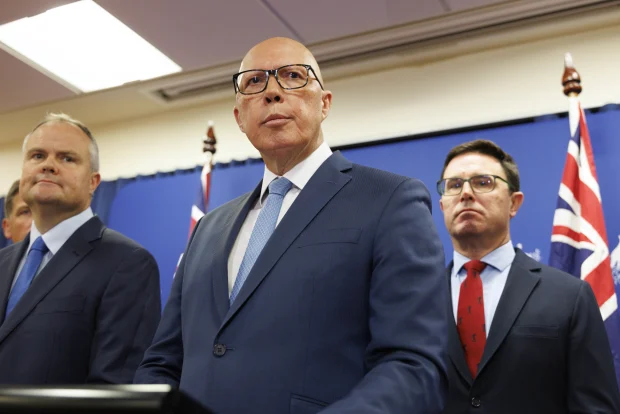The Australian federal opposition has finally released its costings for its nuclear power proposal, claiming it will be $263 billion cheaper than the government’s plan to roll out renewables.
However, this claim has been met with heavy criticism, just days after the CSIRO found that nuclear power would cost around twice as much as solar and wind power.
A Cheaper Alternative or a False Promise?
The opposition’s plan, put together by Frontier Economics, estimates the cost of building nuclear plants across seven sites in Australia at $331 billion. According to Opposition Leader Peter Dutton, this plan will “make electricity reliable, consistent, and cheaper for Australians” while helping the country decarbonize. However, critics have pointed out that the plan produces about 45% less energy by 2050 compared to renewables, making it a less effective solution to Australia’s energy crisis.
Experts Cast Doubt on Cost Figures
Several bodies, including the Climate Council, have questioned the validity of the figures, citing that the modelling doesn’t take into account the cost of keeping coal-fired plants operating for longer than expected and storing nuclear waste. The CSIRO report found that a mix of renewables with firming was up to half the cost of nuclear energy, making the opposition’s plan seem like a more expensive option.
Australian Government Slams Opposition’s Plan
The government has also hit out at the opposition’s costings, with Energy Minister Chris Bowen saying that they “just don’t add up.” Outgoing cabinet minister Bill Shorten echoed similar sentiments, saying that the numbers “won’t stack up.”
**Article 2: Queensland Police Commissioner Warns of Burnout Crisis
Policing Under Pressure: Overworked and Understaffed
Queensland’s Police Commissioner, Steve Gollschewski, has shed light on the dire burnout crisis faced by frontline officers, with new figures revealing that the state’s police force is being called to more than 100,000 jobs a month.
Domestic Violence on the Rise
According to the Queensland Police Service’s latest report, domestic violence offences have been increasing, accounting for 56.9% of total assault offences in 2023-2024. This has put a significant strain on police resources, with Commissioner Gollschewski stating that it can take up to four to six hours of a police shift to respond to these calls.
Officers “Red-Lining” Under Workload
“We are operationally red-lining most days,” Commissioner Gollschewski said, highlighting the need for recruitment and investment in improved systems to alleviate the pressure on exhausted frontline officers. The goal is to allow officers to focus on proactive policing, rather than just reacting to an increasing number of calls.
A Call for Reform
With an increased focus on reform, Commissioner Gollschewski hopes to build a more sustainable policing system that doesn’t rely on exhausted officers to keep up with the demand. The question remains: can the Queensland Police Service find a way to tackle the burnout crisis and provide a better service to the community?

